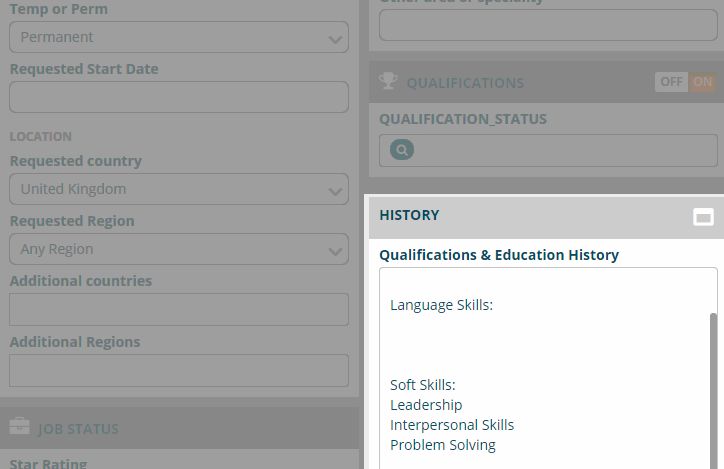Why you should always recruit to soft skills
There are doom-mongers, of course. Those who say that entire sectors will be emptied of their personnel and replaced by robots.
Others take a more level-headed approach. AI, they say, will automate some individual processes and tasks. But they are unlikely to replace entire professions.
It makes sense: automated processes streamline our workflows. An entirely automated department, enterprise, or industry would require remarkable levels of oversight. In all likelihood, “full automation” would offer fewer efficiency savings than a mixed, integrated version of a robotic workplace.
But where does the overlap between (wo)man and machine occur, in the recruiting sector? What does recruitment AI look like – and what can it achieve? This was the question that got the eBoss team thinking after a social media discussion on the very subject.
More specifically, this discussion on kialo.com posed the rather provocative question: “would a recruiter-less world be a better one?”
The end of the human recruiter?
The thrust of the discussion was this: recruiters no longer add value to the hiring process, or the candidate experience. They should, therefore, be replaced by recruitment AI instead.
Which got me thinking. What is the value offering of a human recruiter? Some of the reasons for replacing meatspace talent managers with digital ones included “AI is better at reading a CV than a recruiter”, and “you can get AI to do all the admin – and [do] not need to talk to a recruiter.”
These were interesting responses, because both are true – to some extent. Recruitment AI does take the tedious admin tasks out of human hands. Scanning and parsing the hard facts of a candidate CV is much faster when done by a computer.
But is this really what recruiting is? Admin is a necessary evil, but a top class filing system is hardly going to win you new clients or contracts.
Adding value to the hiring process
So what is it that a human recruiter can offer? How about this for size: “A human recruiter can assess the soft skills of a candidate and connect them with a matching employer in a way that a machine cannot learn.”
It seemed a good starting point. Recruitment AI is smart – but it’s not that smart. Not yet, anyway. We need humans on hand to assess candidates and qualify their range of talents. Some skills are hard to quantify – others, all but impossible. Yet we are learning that, increasingly, employers are seeking the intangible. If your hiring process takes time and money, and you are then allocating further resources to train and shape your onboard personnel, it makes sense to find someone who will remain with you for the long haul. That means a cultural match. It means adaptability. It may mean future leadership potential.

These are high value attributes; commonly referred to as “soft skills”. If a computer cannot evaluate these qualities, then a human recruiter becomes the sole source of added value in the hiring process.
I felt we had hit upon a winning formula. What would the discussion group’s response be? It was perhaps a bit more direct than I anticipated. “Most recruiters screen on hard skills rather than soft. That’s part of the issue that there is often a lack of connection with those soft skills – so may as well just go straight to AI.”
This seemed a little unfair. It’s certainly not true to say that no recruiters consider soft or interpersonal qualities when shortlisting. eBoss added soft skills tools to our candidate databases a long time ago – due to demand. And our subscribers are not alone. But the discussion group had chosen a worst-case-scenario recruiter to represent all of recruitment.
Offering the unquantifiable
But that in itself was revealing. The discussion made one thing very clear. The distinction between a good and a poor recruiter is their attention to detail when it comes to interpersonal skills. A good recruiter will always match candidates to roles based on soft and social skills – as well as experience. In fact, an ability to assess a person’s character from perhaps a single conversation is the hallmark of a great recruiter. When a consultant fails to do this, they are deliberately not playing to their strengths. In which case, perhaps they should be replaced by a machine, after all!
So, the next time you worry about job security in an automated future, bear this in mind. And always screen your candidates with at least one thought given to the unquantifiable skills of your applicants.
After all, the off-CV abilities of your candidates are not only the thing that separates them from the other applicants being interviewed. Their soft skills are also what distinguishes you from all the of other recruiters in the minds of your most important clients. Build better shortlists. Delight your clients every time. And – when you’re screening your applicants – remember: every soft skill counts.












